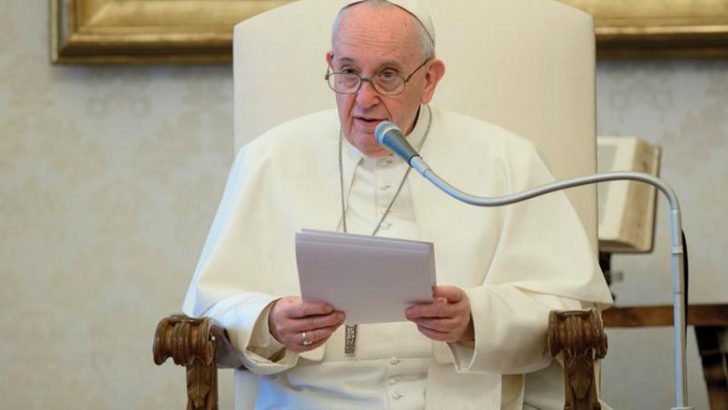In that brief intermezzo over the summer between what turned out to be the first and second great surges of the Covid-19 pandemic, Pope Francis held a series of appropriately socially distanced, “virtual” conversations with his premier English-language explicator about what he believes needs to be done for the world to be better than it was before the crisis.
Through conversations held on the phone, through voice recordings and via email, Francis answered questions posed to him by British biographer Austen Ivereigh on a wide range of issues, including the death of George Floyd; clerical sexual abuse; the toppling of statues in an effort to reshape perceptions of history; protests against government coronavirus restrictions; persecuted minorities such as Christians, Yazidi, Rohingya and Uighurs; migrants and refugees; and, though the book notes “many will be irritated to hear a Pope return to the topic,” Francis discussed abortion at length too.
The Pope’s comments are included in an interview book he authored with Mr Ivereigh, titled Let us Dream, which will hit bookstores and online shops December 1. Crux, along with other news outlets, received an advance copy.
Social distancing
On abuse, both sexual and abuses of power, Francis noted that social distancing has made some potential victims more susceptible to online grooming and other abuses which, as a community, “we should be watching out for and reporting”.
“In these past years, thank God, we have seen a particular awareness of these issues,” he said. “The culture of abuse, whether sexual or of power and conscience, began to be dismantled first by victims and their families, who in spite of their pain, were able to carry through their struggle for justice and help alert and heal society of this perversity.”
Francis added he “will not tire of saying with sorrow and shame, these abuses were also committed by some members of the Church”.
“In these past years we have taken important steps to stamp out abuse and to engender a culture of care to respond swiftly to accusations,” the Pope said. “Creating that culture will take time, but it is an unavoidable commitment which we must make every effort to insist on.”
Awoken
Society too, Francis argued, has awoken against abuse, either through the #MeToo movement, or the many scandals “around powerful politicians, media moguls and businessmen”.
The Pope argued that the root of the sin of abuse is “failing to respect the value of a person”. Here, Francis connects the dots to “another abuse of power” that took place this summer, “the horrendous police killing of George Floyd” that triggered protests against racism around the world.
Mr Ivereigh’s own voice is largely absent from the book except for a postscript, where he shares some insights on how the book came to be. He says it took shape in his mind during Francis’ historic Urbi et Orbi blessing in late March, when the first wave of the pandemic had forced most of Europe into lockdown.
The plethora of topics the two discussed in the book, written simultaneously in Spanish and English, includes why Pope Francis thinks women during the Covid-19 crisis have proved better leaders, and why female economists offer a blueprint for the new kind of economy the world needs; why change can only come from the margins of society and a politics centred on fraternity and solidarity; why the Pope favours a universal basic income, and strong curbs on a neo-liberal market economy to enable access to work, greater equality, and ecological recovery; and the need for a new kind of politics beyond managerialism and populism, rooted in service of society and the common good.
Francis also writes that it’s not only individuals who are tested by crisis such as this one, but also entire peoples, including governments that have had to choose in the pandemic.
“What matters more: to take care of people or keep the financial system going? Do we look after people, or sacrifice them for the sake of the stock market? Do we put the machinery of wealth on hold, knowing people will suffer, yet that way we save lives?” he said.
Yet Covid-19 is far from being the only “sword” humanity faces today: this crisis “may seem special because it affects most of humankind,” yet it’s only special because it’s visible. Thousands of other crises are “just as dire,” but far enough that “we can act as if they don’t exist.”
Comparison
Francis supports his comparison of Covid-19 with others crises statistically, noting that 3.7 million people died of hunger in the first four months of 2020.
Throughout the book, he gives several possible answers, including this one: “This is a moment to dream big, to rethink our priorities—what we value, what we want, what we seek—and to commit to act in our daily life on what we have dreamed of.
“Let us dare to dream. God asks us to dare to create something new. We cannot return to the false securities of the political and economic systems we had before the crisis,” he said. “We need to slow down, take stock, and design better ways of living together on this earth.”



